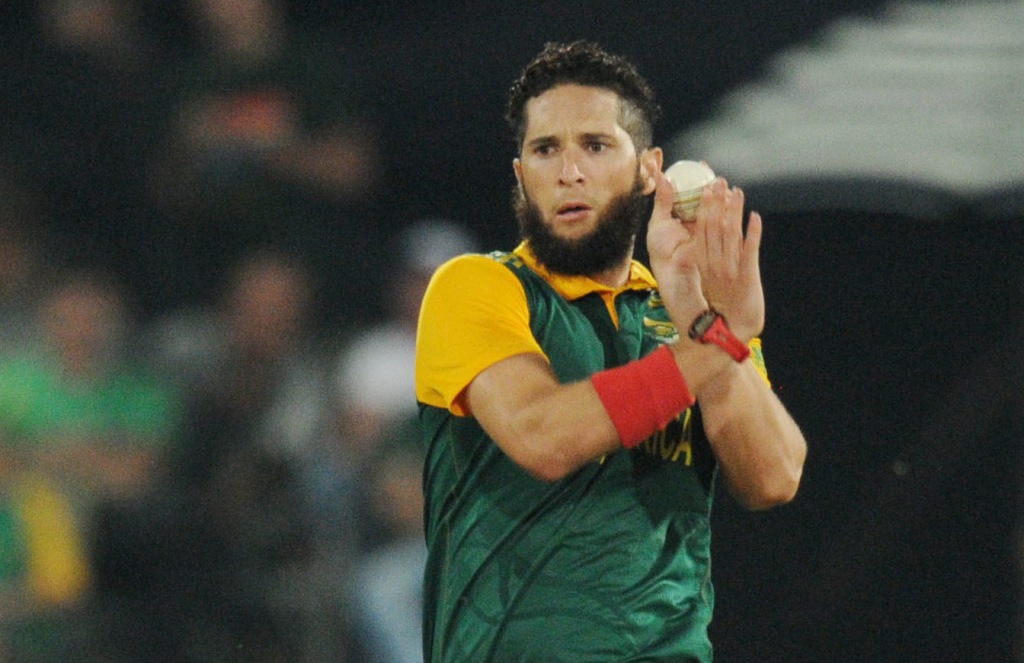On Monday, we picked our best World Cup XI. Today, we pick out worst World Cup XI from 1992 until 2015.
1. Quinton de Kock (wicketkeeper)
(CWC Mts: 6; Runs: 53; Bat Ave: 8.83; Cts: 6; Sts: 1)
The joint-fastest to 1 000 ODI runs, the next 500-odd have been substantially more difficult to come by for De Kock, who probably would have been benched already – were AB de Villiers not a begrudging wicketkeeper.
2. Mark Rushmere
(CWC Mts: 3; Runs: 49; Bat Ave: 16.33)
Rushmere was a prodigious domestic talent going into the 1992 World Cup, and was even tipped as a future captain, but his form fell from favour – and he was particularly flawed on the hook or pull.
3. Ashwell Prince
(CWC Mts: 9; Runs: 107; Bat Ave: 21.40)
Prince really struggled to hold his own in a batting order lined with the talent of Graeme Smith, Jacques Kallis, AB de Villiers and Herschelle Gibbs – and never played another ODI after a two-ball duck in April 2007’s semi-final exit.
4. Hansie Cronje (captain)
(CWC Mts: 23; Runs: 476; Bat Ave: 29.75; Wkts: 8; Bowl Ave: 41.12)
This hypothetical XI required a captain, so the selection of the late Cronje is admittedly cheeky, but he never fulfilled the World Cup potential an otherwise fruitful ODI career promised.
5. Adrian Kuiper
(CWC Mts: 9; Runs: 113; Bat Ave: 16.14; Wkts: 9; Bowl Ave: 26.11)
Provincial cricket was a successful, fun playground for Kuiper – but the step up to international competition, a third of which coincided with the 1992 World Cup, through the twilight of a solid career never saw the best from him with bat or ball.
6. Jonty Rhodes
(CWC Mts: 24; Runs: 354; Bat Ave: 20.82)
Renowned for his athletic fielding and acrobatic catching, which was never really quantifiable in terms of runs saved, Rhodes’ sum of World Cup runs never matched his ability in the field.
7. Nicky Boje
(CWC Mts: 5; Runs: 54; Bat Ave: 54.00; Wkts: 1; Bowl Ave: 144.00)
Up the order, down the order and everywhere in between, Boje’s role with the bat was hampered by a lack of permanent position in the 1999 and 2003 World Cup, while his spin proved expensive throughout – and at times wasn’t even used.
8. Wayne Parnell
(CWC Mts: 2; Wkts: 1; Bowl Ave: 89.00; Runs: 17; Bat Ave: 17.00)
His prowess with the bat has pretty much become non-existent, while his bowling is unnecessarily fast, full and foolish. Suggestion that he succeeds in the middle overs is not good enough, when all sorts of expense is being conceded on either side.
9. Omar Henry
(CWC Mts: 1; Wkts: 1; Bowl Ave: 31)
The specialist slow bowler was a veritable outsider in a 1992 squad fixated with fielding all-seam attacks. Lone opportunity eventually knocked against Sri Lanka, in a match that also brought five overs of part-time spin from Peter Kirsten, but nothing more thereafter.
10. Tertius Bosch
(CWC Mts: 1; Wkts: 0; Bowl Ave: -)
The late right-arm fast bowler was picked ahead of Meyrick Pringle for the key pool fixture against New Zealand in 1992, but was caned to all corners by Mark Greatbatch and company – and was not selected again.
11. Monde Zondeki
(CWC Mts: 3; Wkts: 2; Bowl Ave: 38.00)
Young, exuberant and inexperienced, Zondeki was relatively fruitful against minnows Canada in front of his home crowd at Buffalo Park in East London in 2003, but was nowhere near as successful as fellow Border Proteas Mark Boucher and Makhaya Ntini.







